The ocean carriers’ global schedule reliability increased sharply by 7.7% month-to-month in February 2023, reaching 60.2%, according to Sea Intelligence.
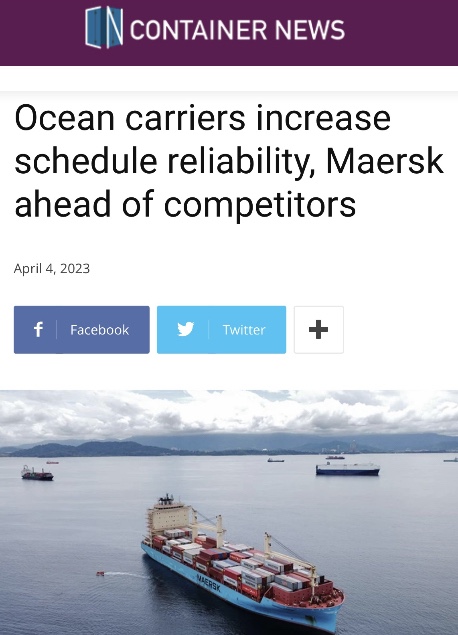
On a year-to-year level, schedule reliability has marked a staggering 26% rise. At the same time, the average delay for late vessel arrivals decreased by 0.07 days month-to-month in February reaching 5.29 days, while it is down 2.30 days year-to-year.
In relative terms, the average delay for late vessel arrivals is now closer to the 2019 level than to the highs of 2021-2022.
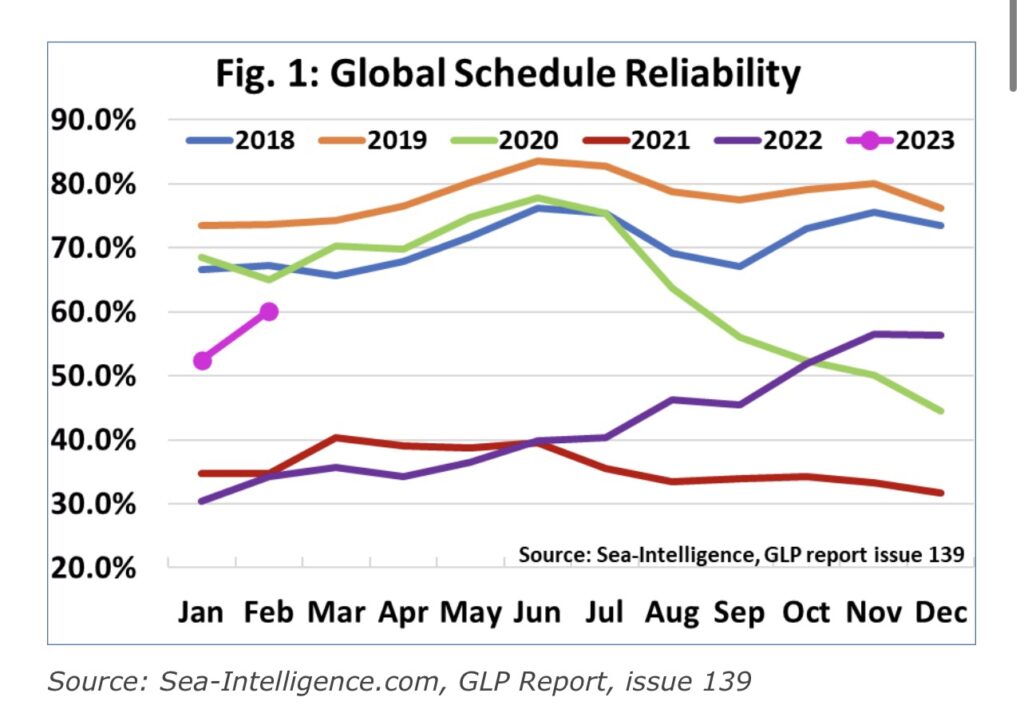
Meanwhile, Maersk was the most reliable top-14 carrier in February with a score of 64.9%, followed by MSC with 64.4%. Hamburg Süd was the third carrier with a reliability score of over 60%.
In addition, the remaining carriers all had a schedule reliability score between 50% and 60%. ZIM was in the last position in February 2023 with a schedule reliability score of 52% despite its significant improvement.
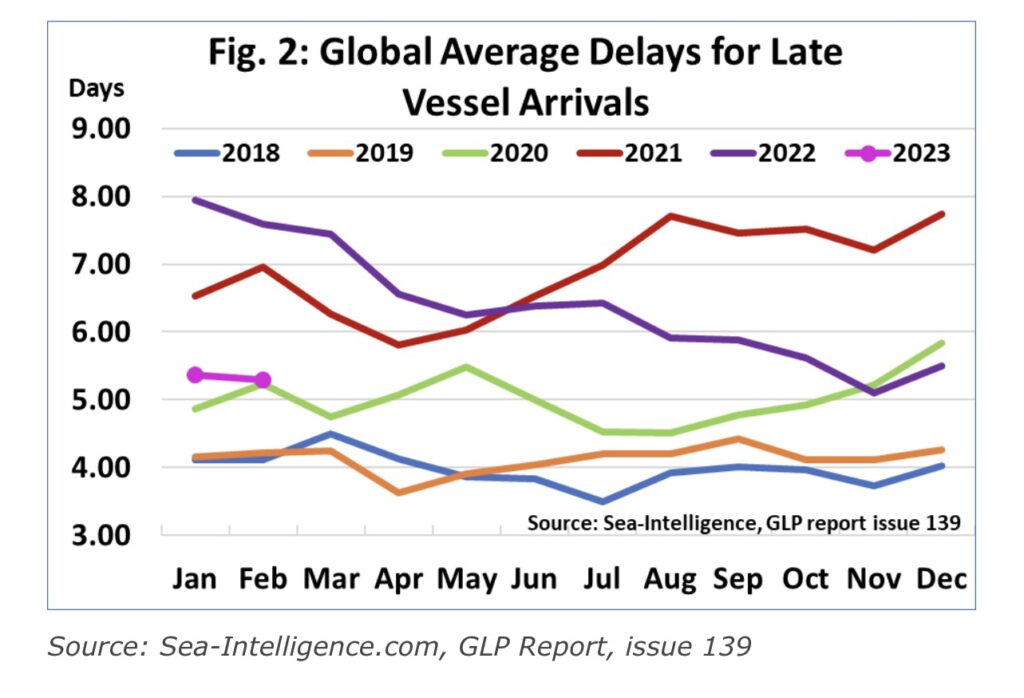
“All top-14 carriers recorded a month-to-month increase in schedule reliability in February 2023, with PIL, ZIM, and Wan Hai all recording double-digit improvements,” noted Alan Murphy, CEO of Sea-Intelligence.
On a year-to-year level, all carriers recorded double-digit improvements in schedule reliability in February 2023, with Wan Hai recording the largest growth of 36.2%.
Meanwhile, Maersk was the most reliable top-14 carrier in February with a score of 64.9%, followed by MSC with 64.4%. Hamburg Süd was the third carrier with a reliability score of over 60%.
”Maersk was the most reliable top-14 carrier in February with a score of 64.9%”
In addition, the remaining carriers all had a schedule reliability score between 50% and 60%. ZIM was in the last position in February 2023 with a schedule reliability score of 52% despite its significant improvement.
“All top-14 carriers recorded a month-to-month increase in schedule reliability in February 2023, with PIL, ZIM, and Wan Hai all recording double-digit improvements,” noted Alan Murphy, CEO of Sea-Intelligence.
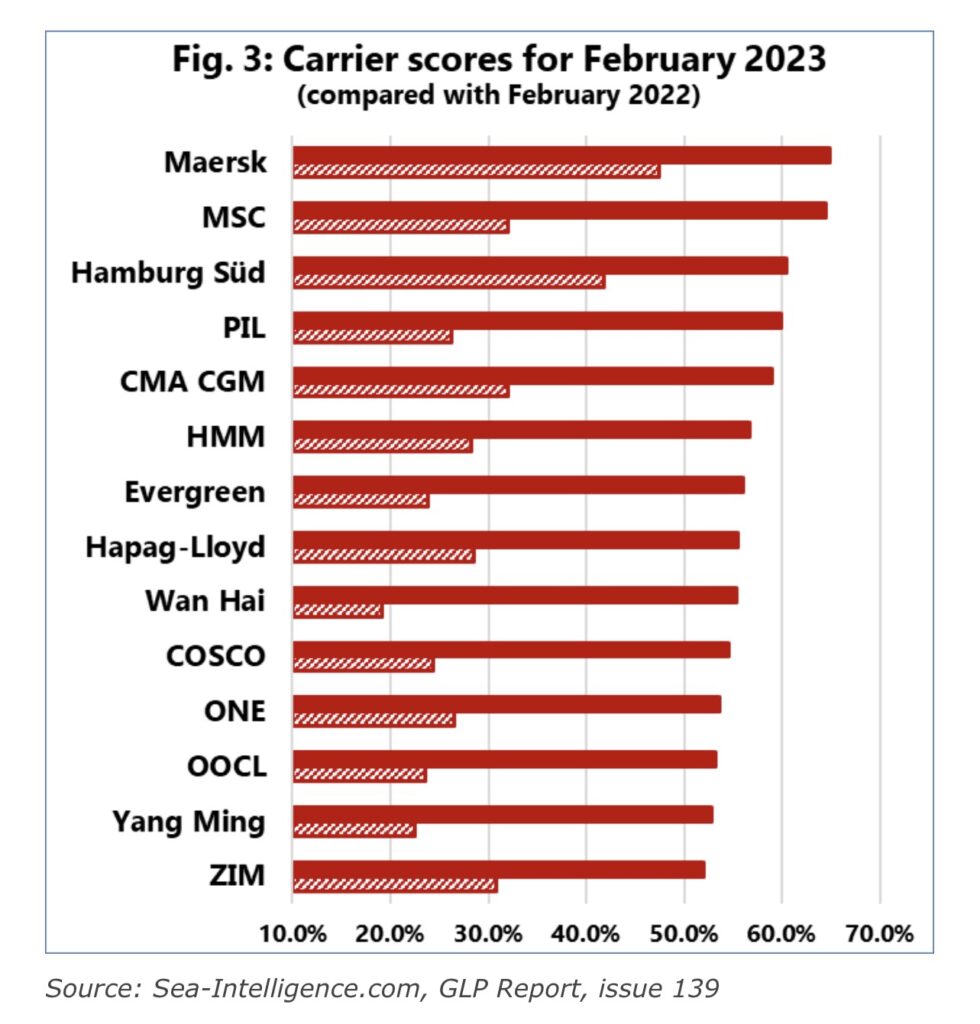
On a year-to-year level, all carriers recorded double-digit improvements in schedule reliability in February 2023, with Wan Hai recording the largest growth of 36.2%.
Source:ContainerNews
Don’t miss the event of the year, ’AICE 2023 Global Trade 2.0 – An Ecosystem of Trust driving Prosperity’.
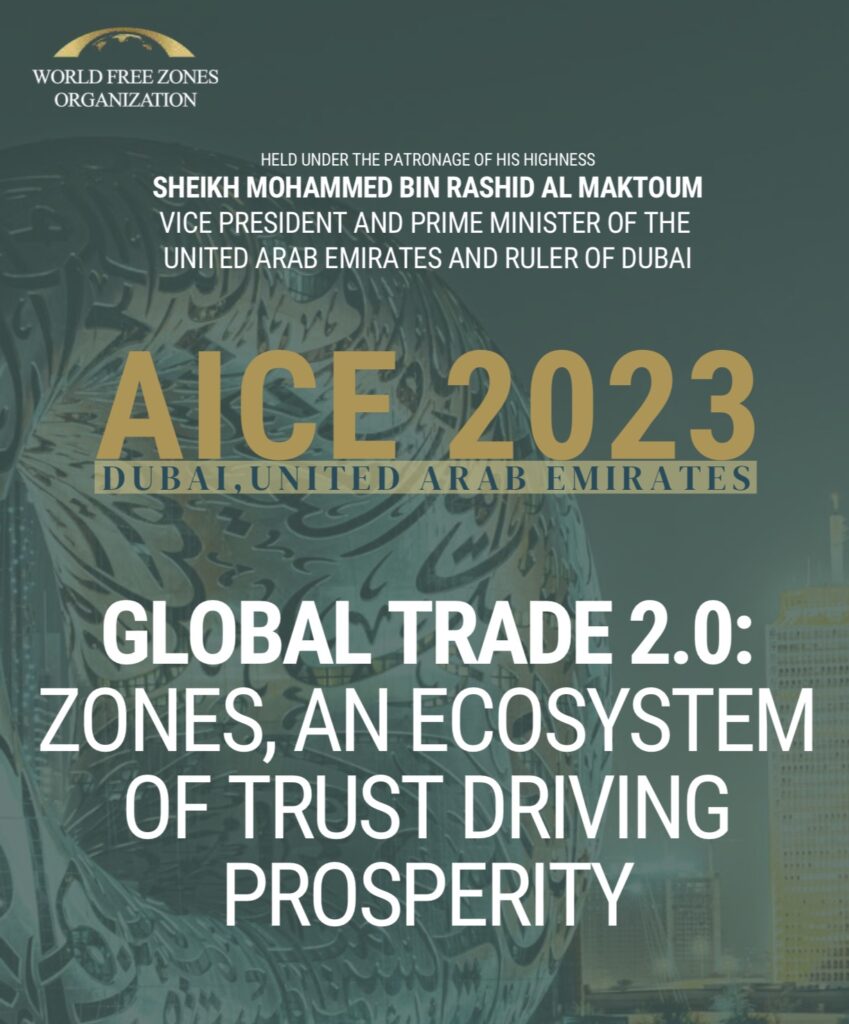
Modern freezones and freeports is a key element for Global Trade 2.0, the next digital generation of world trade. We are talking about digital, transparent and compliant SafeZones that provides a wide range of benefits for compliant traders, investors and nations in an Ecosystem of Trust.
I will be Key Note Speaker – hope to see in Dubai.
If you want to know more I recommend you to visit World Freezones Organizations AICE 2023, on 1-3 May in Dubai, UAE.
For more information and registration, click here: AICE 2023
Singapore’s Infocomm Media Development Authority (IMDA) has partnered with a group of companies including ExxonMobil, VLK and Bunkerchain to complete the first paperless cross-border trade on its TradeTrust platform using electronic Bills of Lading (eBL).
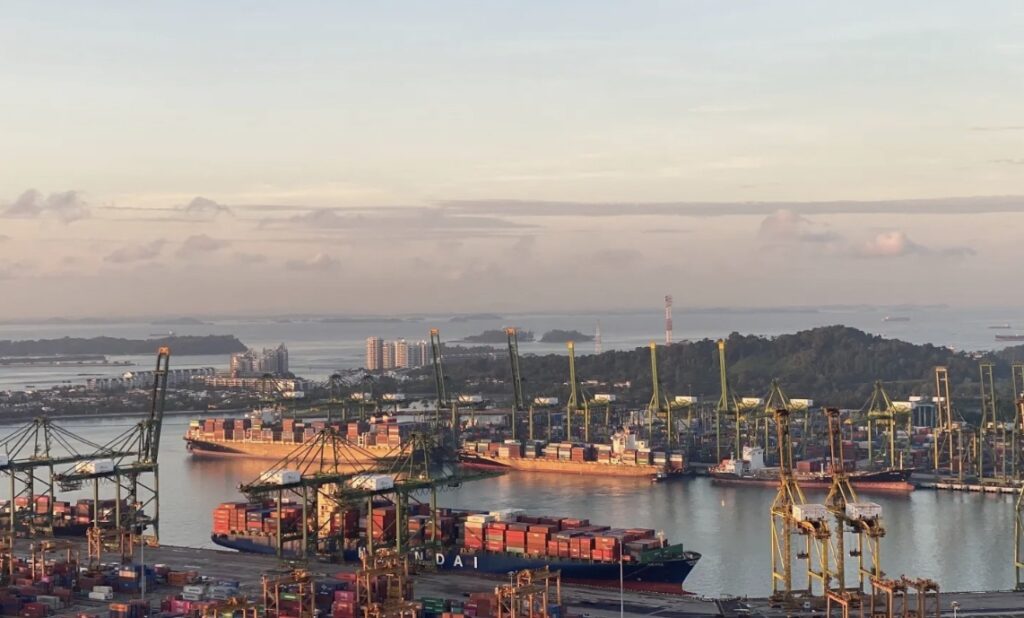
The trade involved the use of an ETR (Electronic Transferable Record), functionally equivalent to a paper Bill of Lading (BL), on the blockchain-powered TradeTrust platform, built to harmonise the legal recognition of digital documentations between various jurisdictions.
The ETR cross-border trade involved ExxonMobil Asia Pacific as the shipper, Bunkerchain as the TradeTrust-enabled digital platform provider and VLK as the vessel owner. Bunkerchain provided its digital system for support of logistics documentation processes for the cross-border liquid chemical trade involving multiple parties, such as a surveyor and custom broker.
TradeTrust was used to enable the digitalisation of the issuance, ownership title transfer and surrender of the ETR as an electronic Bill of Lading (eBL) between the different stakeholders across different systems.
The overall process started with ExxonMobil shipping liquid chemicals from Singapore to Thailand, with VLK issuing an eBL using Bunkerchain. Marine Vessel Pass, a joint project between S&P Global Market Intelligence and Bunkerchain, created a ‘Digital Passports for Ships’ on the eBL to verify the digital identity used in the signing, which was tied to the vessel’s IMO number. The eBL was subsequently surrendered via the TradeTrust system.
“Since 2019, Singapore has looked to reshape, reimagine, and redefine the way the world trades. International trade ecosystem is heavily reliant on physical paper documents and signatures for validation,” said Loh Sin Yong, Director, TradeTrust, IMDA.
“This live transaction for consignment of liquid chemical from Singapore to Thailand leverages on the TradeTrust framework to create an eBL that uses UNCITRAL’s MLETR (Model Law on Electronic Transferable Records) compliant statutory law framework.”
“More importantly, we are excited to have demonstrated that the industry can potentially use eBL even if there was no basis of a contractual legal framework. We believe this will illuminate wider adoption of eBL in cross border trade.”
Source: SmartMaritimeNetwork






You must be logged in to post a comment.